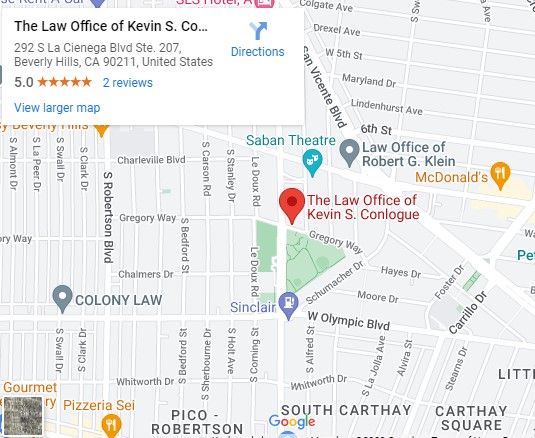Get Paid: Uncover Your Injury Damages
Ever wonder what compensation you might be eligible for after an injury in California? Navigating through personal injury claims can seem like a labyrinth, filled with complex rules and unexpected turns.
By consulting with personal injury attorneys in California, victims gain a crucial ally to help maximize their recovery and steer through the legal maze. Knowing your rights is the first step toward securing what you deserve, whether it’s medical costs, lost earnings, or pain and suffering.
Quick Summary
Below is an overview of the critical points of this blog article.
- A personal injury claim in California is a lawsuit in which someone who gets hurt sues the person or group that caused the injury by being careless.
- Personal injury damages are the money responsible parties pay victims to make up for their losses from an injury. Sometimes, these payments can be for non-monetary losses, like pain and suffering, not just money.
- Personal injury damages are divided into various categories to compensate for various losses. Economic damages are money losses, while non-economic damages include pain, suffering, emotional stress, and loss of enjoyment of life. If an injury kills, wrongful death damages and punitive damages can be awarded.
- Filing a personal injury claim requires numerous steps to obtain fair compensation. First, engage a personal injury lawyer to assess your case, help you gather evidence, and then make a formal complaint within the legal timeframe. You can also negotiate a settlement out of court or prepare for a trial with your lawyer and witnesses to win.
- Homeowners, car, and liability insurance companies usually pay for personal injuries.
What is a Personal Injury Claim?
In California, a personal injury claim is a type of lawsuit. The injured person (called the plaintiff) files this lawsuit against the person or group responsible for the injury (called the defendant), who caused the harm by being careless.
This lawsuit usually aims to get money from the defendant to cover the plaintiff’s injuries and losses. Almost any kind of accident can lead to a personal injury claim if it is caused by someone else’s negligence and results in another person getting hurt.
What Are Personal Injury Damages?
Generally, personal injury damages are the money the responsible parties have to pay the victims to cover the losses from the injury. In some situations, like with non-economic damages, these payments might not be in money.
What Are Types of Personal Injury Damages?
Not all personal injury damages are the same. If you want the responsible party to pay you correctly, knowing the exact harm they’ve caused you is essential. Here’s an explanation of the main types.
Economic Damages
Economic or financial losses directly affect your money because you’re spending more or earning less. In a typical personal injury case, financial losses will include:
- Medical Bills. As an accident victim, you have the right to have all your accident-related medical costs paid for. This includes emergency treatment, follow-up visits, surgeries, rehabilitation and therapy, and any future medical needs.
- Cost of Prescriptions. Accident victims in California can also get money back for their current and future prescription costs.
- Damage to Property. If you were hurt in a vehicle accident, you can get your car fixed (or replaced if it was destroyed). If other personal items were damaged in the accident, like your clothes, watch, or phone, you can also get money to repair or replace these items.
- Other Costs Paid Out of Pocket. You can get money back for any extra costs caused by your injuries. This includes money spent on transportation, hiring someone to clean your house, or mowing your lawn.
- Lost Income. If your injuries keep you from working, you can get money for the wages, salary, commissions, tips, benefits, and any other income you missed.
- Future Lost Earnings. If your injuries stop you from working in the future, you can also get money for the earnings you won’t be able to make.
California Civil Code Chapter IV Section 1431.2 says that funeral costs, lost job opportunities, and getting help for household services are also considered economic damages.
Non-Economic Damages
Non-economic (non-financial) losses don’t involve money but still significantly affect your daily life. Common examples of non-financial losses in personal injury cases include:
- Pain and suffering. It refers to the physical discomfort caused by a traumatic injury. This includes sharp pain at the injury site, pain when moving or exercising, and long-lasting pain from a severe injury.
- Emotional Trauma. Emotional trauma is about the mental stress you feel after going through a severe accident and dealing with injuries from it. Often, this emotional stress shows up as Post-Traumatic Stress Disorder (PTSD).
- Scarring and Disfigurement. In California, if your injuries cause permanent scarring or disfigurement or if you need surgery that results in a scar, you can also get compensation for these non-financial losses.
- Loss of Companionship and Consortium. If the physical or mental effects of your injuries hurt your relationship with your spouse, children, and other family members, you can get compensation for the loss of companionship, family support, and togetherness.
- Loss of Enjoyment of Life. In addition to everything mentioned, people who suffer severe injuries in accidents caused by others’ carelessness can also get compensation for losing their ability to enjoy life as they used to.
Punitive Damages
In cases where the defendant’s actions are found to be intentional or highly wrong, they might also have to pay extra punitive damages. These are meant to punish the defendant more severely in addition to other compensation.
Why does the law allow for these types of damages? One reason is to directly punish the responsible party for their actions. Another reason is to use the case as a warning to stop others from doing similar harmful things.
How Can I File a Claim on My Personal Injury Damages?
Getting compensation for personal injury cases can be complicated and overwhelming. Careful handling and organization are needed to make your case as strong as possible.
Filing a claim for damages also depends on the reasons you present to the court for your case. Here’s a simple list of steps to follow when filing a claim for personal injury damages.
Talk to a Lawyer
The first and most crucial step is to talk to a personal injury lawyer. California personal injury attorneys can give you important advice about the strength of your case, what damages you can claim, and what to expect in the legal process.
Collect Proof
The evidence you collect is the base of your personal injury claim. The more precise the evidence, the stronger your case will be. This means you need to gather all important documents, including what witnesses say, in a careful discovery process.
File a Formal Complaint
After you’ve collected the proper evidence, you can file a formal complaint against the responsible party with help from your attorney. Because of the statute of limitations for personal injuries, you have two years from the date of the incident to file. However, if you only recently discovered the injury, you have one year to file.
Try to Settle Out-of-Court
As the name suggests, an out-of-court settlement is when you agree on a solution with the other party without going to court. This involves you and your lawyer talking and making a deal with the person responsible or their insurance company to reach a fair settlement.
Get Ready for Trial
Litigation is a serious part of a personal injury case and can take months to prepare. Your personal injury lawyer will show your case in court to get a favorable decision. They will also prepare key witnesses to speak truthfully under oath. The trial itself might last several days.
A jury and a judge will lead the session. Witnesses will share their accounts to help the court make a better decision. After both sides have made their arguments and questioned their witnesses, the judge and jury will decide if the defendant is at fault.
Who Will Pay for My Compensation?
Compensation is usually given by the insurance company of the person or business that caused the harm. If the person responsible has homeowner’s or car insurance, it might cover the compensation. If a business is responsible, its liability insurance usually pays for it.
The responsible person or business must pay out of pocket if insurance doesn’t cover it. Sometimes, if the responsible party doesn’t have insurance, the victim’s insurance might cover some or all of the compensation.
Fight for What You Deserve
Navigating personal injury damages in California can be tricky, but you don’t have to do it alone. Conlogue Law LLP has a team of skilled personal injury attorneys in California ready to help you understand and claim the compensation you deserve.
Our experience and dedication ensure that every client receives top-notch legal guidance and support. Don’t miss out on what you’re entitled to. Let trusted personal injury attorneys in California fight for your rights and help you recover every penny you’re owed.
Our law firm can also represent you in Police Misconduct, Unlawful Search, and Malicious Prosecution cases. Contact us today for a free consultation and take the first step towards securing your future.








